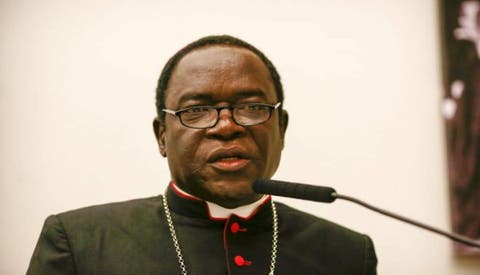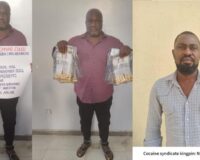The ongoing trial of Abubakar Ali Peters, Chairman, Nadabo Energy, for an alleged N1.4bn oil fraud, continued on Tuesday, December 8, 2020, with the fifth prosecution witness.
The PW5, Abdulrasheed Bawa, told Justice C.A. Balogun of the Lagos State High Court sitting in Ikeja that the defendant used forged documents to benefit from the Federal Government’s subsidy regime.
Peters alongside his company, Nababo Energy Limited, were arraigned on December 10, 2012, for offences bordering on obtaining money by false pretences, forgery and use of forged documents to the tune of N1,464,961,978.24.
The defendant allegedly obtained the money from the Federal Government by falsely claiming that it represented the subsidy accrued to them.
They pleaded not guilty to the charge preferred against them.
At today’s sitting, Bawa, who was led in evidence by the prosecution counsel, S.K. Atteh narrated how the investigation of the oil subsidy regime, particularly as it related to Nadabo Energy Limited, exposed significant fraud in the documents presented by the company to the Petroleum Support Fund, PSF.
Identifying exhibits J to J9 and another bundle of documents marked by the Court as Exhibit B series, Bawa explained that the “subsidy regime required that oil marketers, who were given a permit to import Premium Motor Spirit, PMS, submit bundles of documents in relation to the financing and importation of petroleum products into Nigeria.
“The defendant, in this case, submitted exhibit B to the Petroleum Products Pricing Regulatory Agency, PPPRA, indicating that they had imported about 14,000 metric tonnes of PMS equivalent to about 19,000,000 litres and that the transaction was financed by Enterprise Bank Limited through an LP number SPG/DLC/11/0013 dated 27th of October 2011.
“It is as a result of the documents that were submitted by the defendant that the PPPRA computed the subsidy and the Federal Government of Nigeria paid over N1.4 billion to the defendant through the Sovereign Debt Note.”
Bawa, in his further testimony, told the court that the EFCC analysed the LC used for the transaction and wrote a letter attaching the said LC to Enterprise Bank, in order to authenticate the genuineness or otherwise of the LC, adding that “Enterprise Bank responded that the said LC was a forged document.
“It was sequel to the response that we wrote another letter to the Bank, this time requesting for the transaction documents.”
While identifying the response as exhibit J, Bawa noted that analysis and comparison of the documents with exhibit B revealed that “the said LC SPG/PSG/11/0013 was actually issued by Enterprise Bank and used by the defendant for the importation of 4,800 metric tonnes, which is equivalent to about 6,500,000 litres of PMS.”
According to him, “From exhibits J3, J4 and J5, particularly J3, the commercial invoice for the importation of the actual 4,850 metric tonnes of PMS, we found out that the actual trader who sold the PMS to the defendant was Petrocam Trading PYT Limited and not Ashland Energy SK, as claimed in exhibit B.”
He further told the court that the investigating team found out that the defendant changed the documentation for the importation of about 4,800 metric tonnes of PMS from Petrocam Trading PYT Limited onboard the vessels that brought them to Nigeria as financed by Enterprise Bank to a set of documents that the said LC was used by the defendant to import the purported 14,000 metric tonnes of PMS.
Justice Balogun adjourned to December 9, 2020, for continuation of trial.







